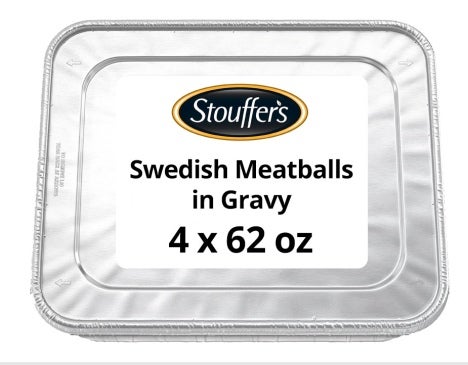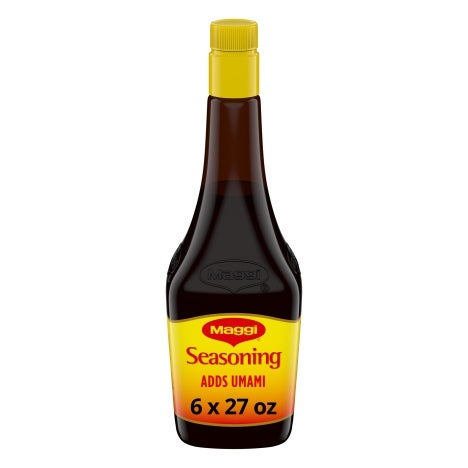
10 Tips to Create a Commotion with LTOs & Specials
SECOND IN A SERIES: Limited-Time Offers and Daily Specials help drive excitement and awareness for your operation. Learn 10 top tactics to make the most of these promotions.
Limited-time offers (LTOs) and menu specials have become a fundamental sales builder for the food service industry, for brands as well as independent operations. A good special menu item drives excitement, increases awareness, explores new food trends, leverages seasonal ingredients and existing inventory—and brings in new and repeat customers—without endlessly extending the menu.
Here are some ways to maximize the potential of special menu items:
-
Make It Strategic – Chili’s Prime Rib Burrito LTO is a savvy extension of the company’s new Fresh Mex platform, which introduces prime rib as a new premium protein in a burrito and on-trend bowl format. The items were introduced in a Chili’s Underground event at the company’s Dallas headquarters Test Kitchen, designed for media and internet bloggers.
-
Consider a Calendar – Many chains design a schedule of four to six LTOs a year to create a constant stream of newsworthy new items. This entails involving both marketing and menu development functions for up to a year in advance to develop, roll out, and merchandise a limited-time offer. In many cases, the LTO itself occurs near the end of a financial quarter in order to generate a bump in sales.
Operators can also implement a regular weekly specials rotation—roast chicken on Saturday, Pasta and Sunday Gravy—designed to spur sales on slow nights and minimize strain on the kitchen with easy-to-execute items on busy ones.
Get Started: Popular, fully prepared products like Stouffer’s® Macaroni and Cheese Made with Whole Grains and Stuffed Green Peppers with Beef and Tomato Sauce or Chef-mate® Chili Con Carne with Beans make menu additions a snap. Or develop signature items: Chicken Fried Steak with Chef-mate Country Sausage Gravy; a hearty French Dip sandwich with Trio® Au Jus or Minor’s® Beef Demi Glace; a delicious dessert specialty made with Libby’s® 100% Pure Pumpkin.
-
Leverage Social Media – The advent of crowd-sourced marketing has changed the specials game. Use it, by promoting specials on your own Facebook and Twitter accounts, and inviting fans to tweet, Instagram, check in, and generally help get the word out.
-
Keep Guests’ Comfort Level in Mind – While all special menu items represent an opportunity to introduce new ingredients and flavors, know your customer base. If your customers are more conservative, design specials around familiar platforms such as burgers or an existing item that your concept is known for. More adventurous patrons in chef-driven establishments may be more than happy to try something more exotic, including unusual proteins such as octopus or veal, spicy or global ingredients, or a new presentation technique.
Get Started: Introducing new flavors is easy with Minor’s flavor concentrates and sauces, designed to take advantage of Asian and Latin menu trends.
-
Make Sure Patrons Know About Specials – Use every means to promote the availability of limited-time offers and specials. POS materials such as posters and table tents can be used to augment menus and menu boards. Add specials to websites and Facebook. In the case of nightly specials, use a blackboard and/or printed specials menu, and also train staff to talk them up (a preshift meeting can be used to discuss the night’s features; better yet, give the staff a taste). On a related note, make sure prices are included, especially if specials carry a premium price point.
-
Follow the Seasons – During the autumn, tastes generally gravitate toward heavily spiced items. In winter, especially at the holiday season, mint, chocolate, chestnut and other rich flavors will be the ones to ring customers’ bells. Spring calls for fresh, produce-heavy recipes. And summer is all about capitalizing on the bounty of fresh fruits and vegetables while emphasizing a more laid-back approach: think barbecue, burgers and seafood.
-
Use Specials to Build Loyalty – In order to turn excitement over an LTO or special into a relationship-building tool, make sure that you capture customers’ contact information so that you can continue to promote future offers. You can do this via a mobile payment or ordering solution, by asking for their email or by encouraging them to sign up for social media updates.
Once you have their information, use it. Solicit input from customers to understand which of your limited-edition items they like the best. You can also involve them in the process by asking them to suggest or vote on ideas for seasonal offerings. This will often energize your customer base and get them to keep coming back. -
Involve Staff – No special can succeed if the staff hasn’t bought in. Get their ideas on what they think would work; you might even consider using one of their family recipes or favorite holiday foods. Limited-time items also need to be designed to minimize the impact on the kitchen and be easy for the staff to serve. Finally, get their input on what’s working and what isn’t—they’re the front line who will be able to tell you what customers are ordering and how they seem to be enjoying it.
-
Consider co-branding – Branded ingredients, from Alaska seafood to popular name-brand candies, capture attention, play off a known and trusted brand name, and can also support premium pricing. Marketing boards like the California Avocado Commission and Cattlemen’s Beef Board can be a tremendous source of ideas and support. And branded products like Nestlé® Toll House® and Butterfinger® offer the added incentive of name recognition and consumer trust.
Get Started: Check out the Nestlé Professional array of branded Dessert Products for recipes and other resources.
-
If Something Doesn’t Work Figure Out Why – Savvy operators can learn as much from missteps as from successes. Did the special item confuse your customers or overstep their comfort level? Was it too expensive or too labor-intensive to produce? Was it wrong for the season or your concept? Should it have been promoted more or differently? A good post-mortem can help you do a better job next time.










